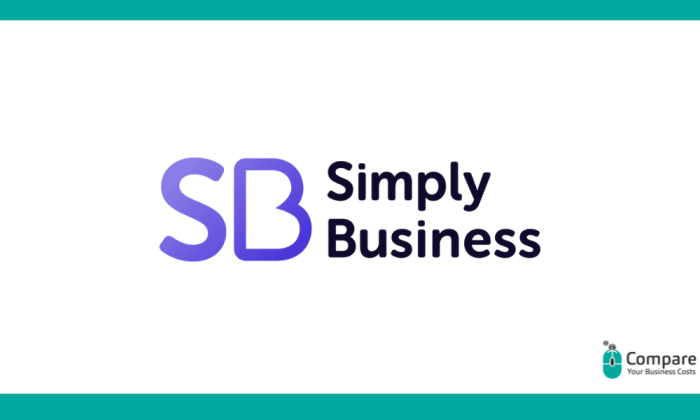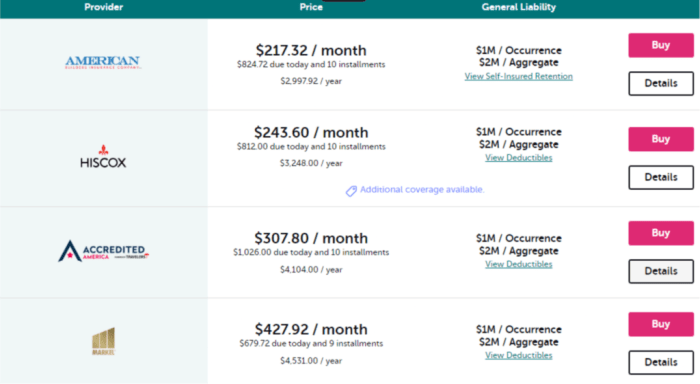Simply Business Landlord Insurance Quotes sets the stage for this informative guide, offering readers a comprehensive understanding of this essential aspect of property ownership. Landlord insurance protects you against financial losses due to unforeseen events like fire, theft, or damage caused by tenants. Understanding the different types of coverage, factors affecting quotes, and the process of obtaining and comparing quotes is crucial for making informed decisions.
Table of Contents
This guide will delve into the key features and benefits of landlord insurance, providing a clear explanation of the different types available and the potential risks they cover. We’ll explore the importance of obtaining quotes, the factors influencing them, and the steps involved in securing competitive policies. By understanding the intricacies of landlord insurance, you can ensure your property is adequately protected and your financial interests are safeguarded.
Understanding Policy Terms and Conditions

Landlord insurance policies contain a variety of terms and conditions that are crucial to understanding the coverage provided. Carefully reviewing these terms ensures you are aware of your policy’s limitations and protections.
Exclusions
Exclusions specify situations or events that are not covered by the policy. It is crucial to understand these exclusions as they can significantly impact your coverage.
For instance, many landlord insurance policies exclude coverage for damage caused by natural disasters like earthquakes or floods.
Knowing the exclusions helps you assess the policy’s adequacy for your specific needs.
Deductibles, Simply business landlord insurance quote
The deductible is the amount you pay out of pocket for each claim before the insurance coverage kicks in.
For example, if your deductible is $500 and you have a $1,000 claim, you would pay $500, and the insurance company would cover the remaining $500.
A higher deductible usually results in lower premiums, but you will have to pay more in the event of a claim.
Policy Limits
Policy limits represent the maximum amount the insurance company will pay for a covered loss.
For example, if your policy has a $100,000 limit for property damage, the insurance company will not pay more than $100,000 for any covered property damage claim.
Understanding the policy limits helps you determine if the policy offers adequate coverage for your property’s value.
Understanding the Fine Print
The fine print of your policy is where you will find the details of your coverage.
- Carefully read through the policy document to understand the specific terms and conditions.
- Ask your insurance agent to explain any unclear terms or conditions.
- Consider seeking advice from an independent insurance broker to ensure you understand the policy’s implications.
Managing Landlord Insurance: Simply Business Landlord Insurance Quote

Landlord insurance is an essential investment for property owners, providing financial protection against various risks. However, simply purchasing a policy isn’t enough; effective management ensures you get the most out of your coverage. This section explores key strategies for managing your landlord insurance policy to ensure you’re adequately protected.
Regular Policy Reviews and Updates
Regularly reviewing your landlord insurance policy is crucial for ensuring it remains relevant and meets your changing needs. As your property, tenants, or the surrounding environment changes, your insurance requirements may evolve.
- Review Policy Annually: At least once a year, carefully examine your policy, focusing on coverage limits, deductibles, and exclusions. Consider any recent changes to your property, such as renovations or additions, or changes in the local rental market.
- Update Coverage: If your property value has increased, you may need to adjust your coverage limits to ensure adequate protection. Likewise, if you’ve made significant improvements, you may need to update your policy to reflect the increased value.
- Consider New Risks: As your property ages or the local environment changes, new risks might emerge. For example, increased natural disaster frequency might necessitate additional coverage.
Resources and Support for Landlords

Navigating the world of landlord insurance can feel overwhelming, especially for new landlords. Luckily, various resources and support services are available to help you understand your insurance needs and make informed decisions. These resources can provide valuable guidance, support, and even financial assistance during challenging times.
Organizations Offering Landlord Insurance Advice
Landlord insurance is a specialized field, and seeking advice from organizations dedicated to landlord issues can be beneficial. These organizations often provide valuable insights, resources, and support for landlords, helping them navigate the complexities of insurance.
- National Landlords Association (NLA): The NLA is a prominent organization in the UK that offers guidance and support to landlords, including information on landlord insurance. They provide resources, advice, and even legal support to their members.
- The Residential Landlords Association (RLA): The RLA is another significant organization that offers guidance and support to landlords. They provide information on various aspects of being a landlord, including insurance, legal issues, and tenant management.
- LandlordZONE: This online platform offers comprehensive resources for landlords, including information on insurance, legal issues, and property management. They also provide forums where landlords can connect and share experiences.
The Role of Insurance Brokers and Agents
Insurance brokers and agents play a crucial role in helping landlords find the right insurance coverage. They act as intermediaries between landlords and insurance companies, providing expert advice and support throughout the insurance process.
- Expertise in Landlord Insurance: Insurance brokers and agents specialize in landlord insurance and understand the specific risks and needs of landlords. They can guide you through the various insurance options and help you choose the right policy for your property and situation.
- Negotiating with Insurers: Insurance brokers and agents have established relationships with multiple insurance companies, allowing them to negotiate competitive premiums and coverage options on your behalf. They can leverage their expertise to secure the best possible deal for you.
- Claims Assistance: In the unfortunate event of a claim, insurance brokers and agents can provide valuable assistance. They can help you navigate the claims process, ensure your claim is handled fairly, and maximize your compensation.
Securing the right landlord insurance policy is an essential step in managing your property effectively. By understanding the factors influencing quotes, carefully comparing options, and understanding policy terms and conditions, you can make informed decisions that protect your investment and minimize financial risks. Remember to review your policy regularly and seek guidance from insurance professionals when needed. By taking these proactive steps, you can ensure peace of mind knowing your property is well-protected and your financial interests are secure.

